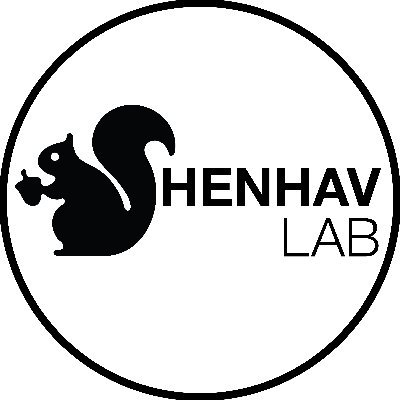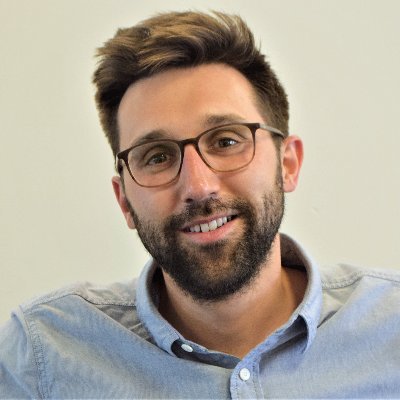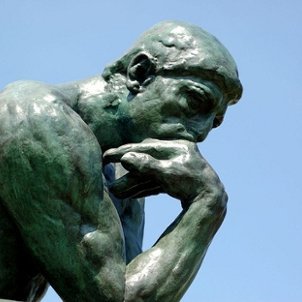
Xiamin (Jason) Leng
@JasonLeng5
Followers
137
Following
37
Media
14
Statuses
28
Postdoc at UC Berkeley psych @ShenhavLab | PhD in Cognitive Science @BrownCLPS
Berkeley, CA
Joined June 2019
➡️P3.I.45: "Validating predictions of a flexible decision-making model for varying decision goals and choice set properties" by Ana Hernandez at 11:15 on 10/5. (2/2)
0
2
4
At #SNE2025? Check out our lab's presentations! ➡️O.03.02: "Competitors or Opportunities? Mutual exclusivity alters neural and attentional processing of choice alternatives" by @JasonLeng5 at 9:00 on 10/4. (1/2)
1
2
2
After scrolling Twitter, it will take you a while to get back into work mode. Why? In our new work (now out in Psych Rev) with @JasonLeng5, @smusslick, @amitaishenhav, we explore the costs of adjusting cognitive control to meet different goals: https://t.co/UyrqGJOD8G A thread:
psycnet.apa.org
A cornerstone of human intelligence is the ability to flexibly adjust our cognition and behavior as our goals change. For instance, achieving some goals requires efficiency, while others require...
3
13
29
Our newest chapter, “Breaking the tug-of-war,” reviews the lab’s latest @NIH- and @NSF-funded research that has changed the way we think about decision-making (and we hope how you do also): https://t.co/9icpvmaNtn Led by @JasonLeng5, along with @YiHsinSu1 and @froemero1
0
6
10
Our paper is finally in press! Many thanks to @froemero1, Thomas Summe, @amitaishenhav, and everyone in @ShenhavLab!
Xiamin Leng and colleagues find that framing options in a choice set as inclusive (instead of mutually exclusive) increases the efficiency of choices and reduces feelings of conflict. https://t.co/HyBjCvGUeB
1
4
13
Attending #CCN2023 tomorrow? Come check out some of our lab's fantastic posters!! (P-2B.74, P-1B.92) 🧠🇬🇧🥳
2
3
10
All in all, these studies show that choices can improve and feel less costly when enacted as though there are still other options possible. These benefits result from options no longer competing as strongly with one another, relieving a major source of tension in choice. 9/
0
0
3
Another way people have been shown to facilitate choices is to set a tight deadline. We confirm that this is the case. However, we find that this process is enacted via a different decision mechanism than inclusivity, and led people to feel more, rather than less, conflicted. 8/
1
0
2
We explored if the benefit of inclusivity is tied to choosing multiple good options but avoiding choosing even one low-value option. We reversed the task, having participants remove options from a set. We found that inclusivity benefited low-value but not high-value choices. 7/
1
0
1
So we find that people make better choices under an inclusive mindset, but does choosing *feel* any better? Yes! Subjects reported feeling less conflicted for inclusive choices. This inclusivity benefit was especially high when choosing between the best-valued options. 6/
1
0
1
We show that these and other behavioral patterns from our task can be uniquely accounted for by taking a dynamic decision-making model and tuning down the level of competition between potential responses (mutual inhibition), making the decision process more “race-like”. 5/
1
0
1
We asked them to always pick their favorite option first, so we could compare this first choice between when they could choose more (inclusive/buffet) vs. when they could not (exclusive/menu). Remarkably, these initial choices were more efficient under a buffet mindset! 4/
1
0
1
We had people choose between sets of products. For some choices, they could only choose one option, in which the options were mutually exclusive (like choosing 1 dish from a menu). For others, they could choose as many options as they wanted (like choosing from a buffet). 3/
1
0
1
Decisions in our daily life can drain us constantly. What is the root of these choice costs? We argue that it is the tension between choosing one option at the sacrifice of others. We wanted to see if we could make choices less costly by eliminating this perceived tension. 2/
1
0
1
Excited to share my latest preprint with @froemero1, Thomas Summe, & @amitaishenhav: “Mutual inclusivity improves decision-making by smoothing out choice’s competitive edge” https://t.co/AMf1O0X57C A short 🧵 1/
1
10
34
We’re looking for a new postdoc! If you’re interested in how people make cost-benefit decisions, including about mental effort, this offers the chance to explore such questions using multiple (neural, comp) methods with an amazing group of people. Pls RT!
0
48
62
If you're at #CogSci2022, check out @GrahekIvan's talk Thurs morning (T2.3) on work co-led by @JasonLeng5 and w/ @mpraterfahey & @debyee29: "Empirical and computational evidence for reconfiguration costs during within-task adjustments in cognitive control"
Flying to #CogSci2022? Wondering why it’s hard to finish your talk after scrolling Twitter while waiting to board? Drop by the Decision Making session on Thursday morning to hear my talk (T2.3) about the costs of adjusting how we process information (attention and caution). 1/2
0
4
8
Register now for the 3rd Workshop on Mental Effort 2022 (Nov 21-22) in Providence, RI @BrownCLPS: https://t.co/zBoc0Fh5rM The workshop is designed to facilitate exchange of ideas between researchers studying mental effort across different disciplines and modeling frameworks. 1/4
sites.google.com
4th Workshop on Mental Effort We are currently planning the next Workshop on Mental Effort. Stay tuned for updates by signing up for our newsletter.
1
17
35
Attending #RLDM2022? Check out the fantastic posters being presented by members of our lab (IDs 1.141, 1.110, 2.113, & 2.140) during the poster sessions this Thursday and Friday, 4:30pm-7pm! Described in 🧵below, hope to see you all there!😎🥳
1
6
20
6/6 Overall we provide a mechanistic account for the dissociable impacts of reward and punishment on cognitive control allocation. Thanks to the contributions from @debyee29 (experiment), @harrison_ritz (modeling), and especially @amitaishenhav!
0
0
3





